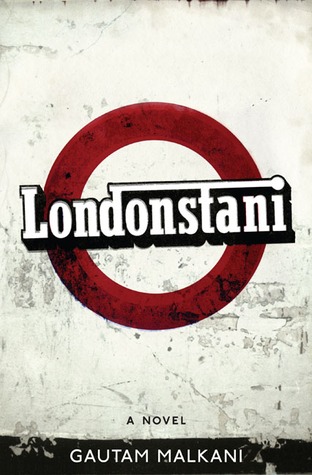Were he to amble down the right roads, one might forgive Wm. M. Thackeray for mistaking present-day Hounslow—the London borough where he once lived and the setting for Gautam Malkani’s debut, Londonstani—for his birthplace of Kolkata (Calcutta), given that nearly a quarter of its residents are of Indian and Pakistani origin. One might also find Thackeray’s subtitle for Vanity Fair, “A Novel Without a Hero,” useful in describing Malkani’s book as well. But such curious confluence ends there. The Victorian (who as an editor once rejected an Elizabeth Barrett Browning poem for her use of the word “harlot”) would surely find difficulty in, ahem, making peace with Londonstani’s language, given the tartness of its opening line: “Serve him right he got his muthafuckin face fuck’d, shudn’t b callin me a Paki, innit.”
Hardjit, the novel’s swaggering, preening, sinewy-muscled Sikh, pauses while administering a savage beating to an undeserving youth to offer this bit of midmatch commentary. His Asian “bredren,” Ravi, Amit, and narrator Jas, offer support to his one-sided pugilistic endeavor “like some tutty boy band,” whenever they’re not busy with their side-scheme reprogramming cellular “fones” or banging on about Bollywood actresses. Yet these are not your father’s wannabe gangsters. These hard men are the kind who’ll coolly excuse an opponent’s tardiness at a late-afternoon brawl because he was busy helping Mum carry the shopping home from the market. Being “rude” is second to naught but familial custom for them, and their fraught masculinity—simultaneously infantilized and overzealously aggressive, both mindful and dismissive of tradition—forms Londonstani’s central conflict.
Protagonist Jas is a complex and revolutionary “desi” (loosely, “countryman”) in more ways than one. Though he aspires to live by Hardjit’s self-consciously boorish “Rudeboy Rules,” delinquency is not in his blood. An inner geek peeks from behind his expletive-adorned facade, sometimes charmingly so, as when Jas deigns to describe his nerdish youth: “I didn’t get an E or a D in GCSE History, you see. I got me a muthafuckin A class, innit.” His and his mates’ vernacular, an anarchic swirl of slang, txt-msg talk, patois, Punjabi, Hindi, Urdu, and loads of “innits,” crowds the book’s first third, and it feels authentic to a point. Jas’s jingle-jangle monologues don’t convince, primarily because they are not so intended. Gradually, we see less of his favored mechanism of bottling his intelligence away (an automatic “Anyway, fuck that”). A keener though undoubtedly pliable mind is revealed as Jas and the boys become embroiled in a well-paid phone scam that allows them to live out their blinged-out, rap-inflected fantasies.
Thematically, the aimlessness and restlessness here recalls Sam Selvon’s The Lonely Londoners, and stylistically, any comparisons to Irvine Welsh’s Trainspotting are as inescapable as they are apt. And Malkani’s Jas bears as much resemblance to Karim Amir (from Hanif Kureishi’s The Buddha of Suburbia) as he does to Ali G. As a point of distinction, Malkani, a Financial Times writer, can’t help but to occasionally wax economic, provocatively suggesting that the materialism and misogyny of hip-hop culture that these sons embrace may very well be of a stripe indistinct from that of their status-obsessed, dowry-doting parents. The globalization of gangsta as appropriated by the mainstream: I mean, greed’s good, innit?





